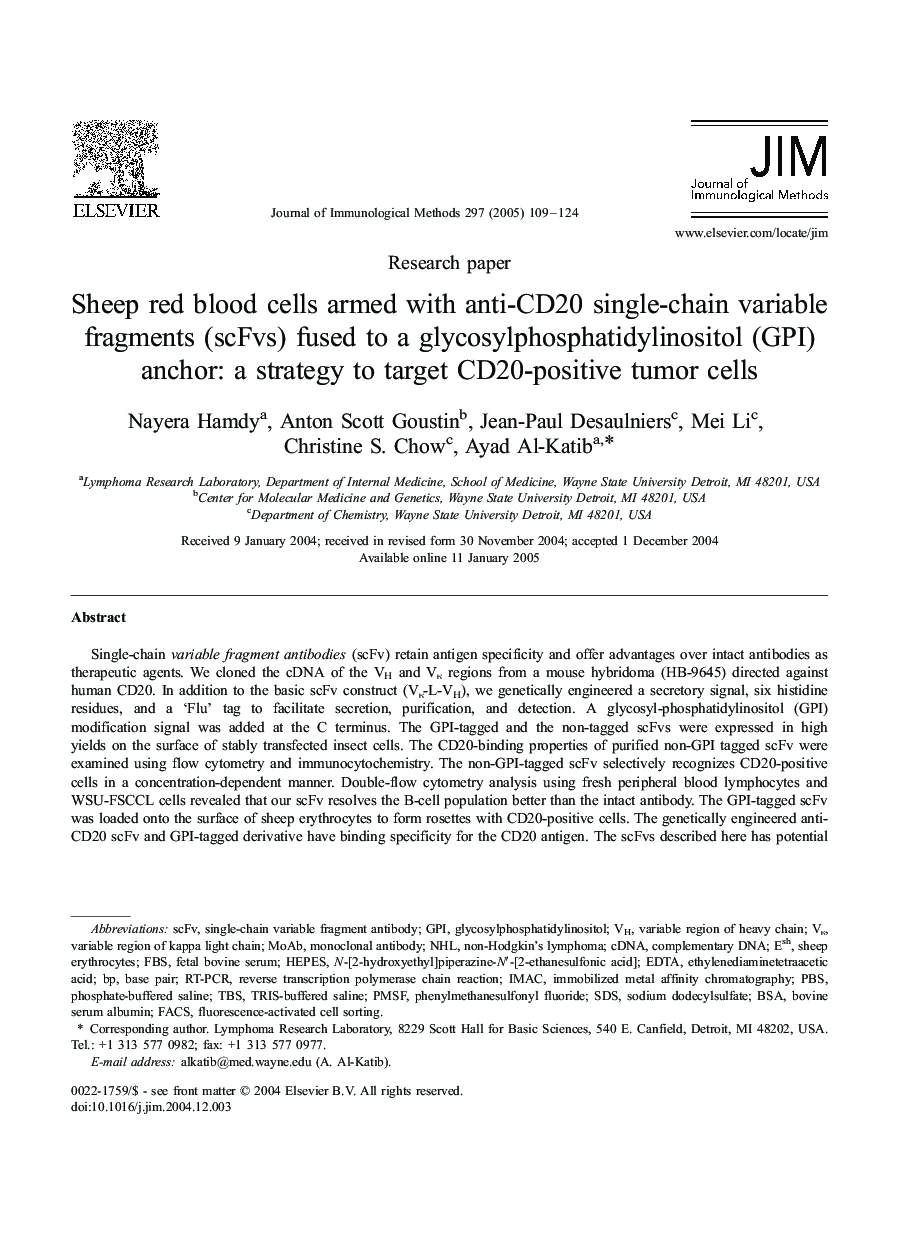| Article ID | Journal | Published Year | Pages | File Type |
|---|---|---|---|---|
| 9902375 | Journal of Immunological Methods | 2005 | 16 Pages |
Abstract
Single-chain variable fragment antibodies (scFv) retain antigen specificity and offer advantages over intact antibodies as therapeutic agents. We cloned the cDNA of the VH and Vκ regions from a mouse hybridoma (HB-9645) directed against human CD20. In addition to the basic scFv construct (Vκ-L-VH), we genetically engineered a secretory signal, six histidine residues, and a 'Flu' tag to facilitate secretion, purification, and detection. A glycosyl-phosphatidylinositol (GPI) modification signal was added at the C terminus. The GPI-tagged and the non-tagged scFvs were expressed in high yields on the surface of stably transfected insect cells. The CD20-binding properties of purified non-GPI tagged scFv were examined using flow cytometry and immunocytochemistry. The non-GPI-tagged scFv selectively recognizes CD20-positive cells in a concentration-dependent manner. Double-flow cytometry analysis using fresh peripheral blood lymphocytes and WSU-FSCCL cells revealed that our scFv resolves the B-cell population better than the intact antibody. The GPI-tagged scFv was loaded onto the surface of sheep erythrocytes to form rosettes with CD20-positive cells. The genetically engineered anti-CD20 scFv and GPI-tagged derivative have binding specificity for the CD20 antigen. The scFvs described here has potential uses as an in vivo tumor-imaging agent and as a carrier vehicle for targeted delivery of cytocidal agents to CD20-positive cancer cells.
Keywords
PBSMoAbCD20NHLGPiPMSFESHRT-PCRIMACTBSscFvHEPESFACSFBSSDSBSAcDNAComplementary DNAN-[2-hydroxyethyl]piperazine-N′-[2-ethanesulfonic acid]Vκbovine serum albuminSingle-chain variable fragment antibodyMonoclonal antibodyHuman antibodiesEDTAEthylenediaminetetraacetic acidsheep erythrocytesTris-buffered salinebase pairfluorescence-activated cell sortingsodium dodecylsulfatefetal bovine serumPhenylmethanesulfonyl fluorideB-lymphocytesnon-Hodgkin's lymphomaPhosphate-buffered salinevariable region of heavy chainreverse transcription polymerase chain reactionimmobilized metal affinity chromatographyglycosylphosphatidylinositol
Related Topics
Life Sciences
Biochemistry, Genetics and Molecular Biology
Biotechnology
Authors
Nayera Hamdy, Anton Scott Goustin, Jean-Paul Desaulniers, Mei Li, Christine S. Chow, Ayad Al-Katib,
